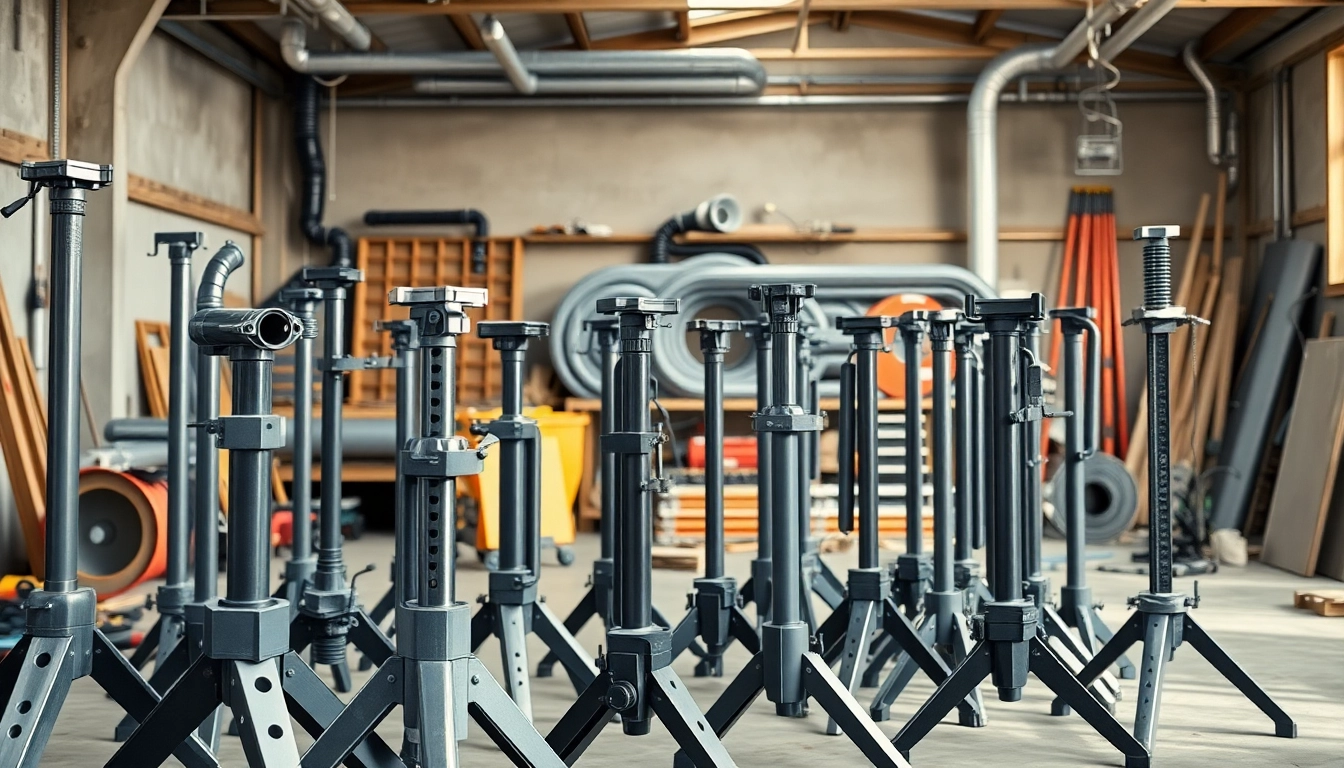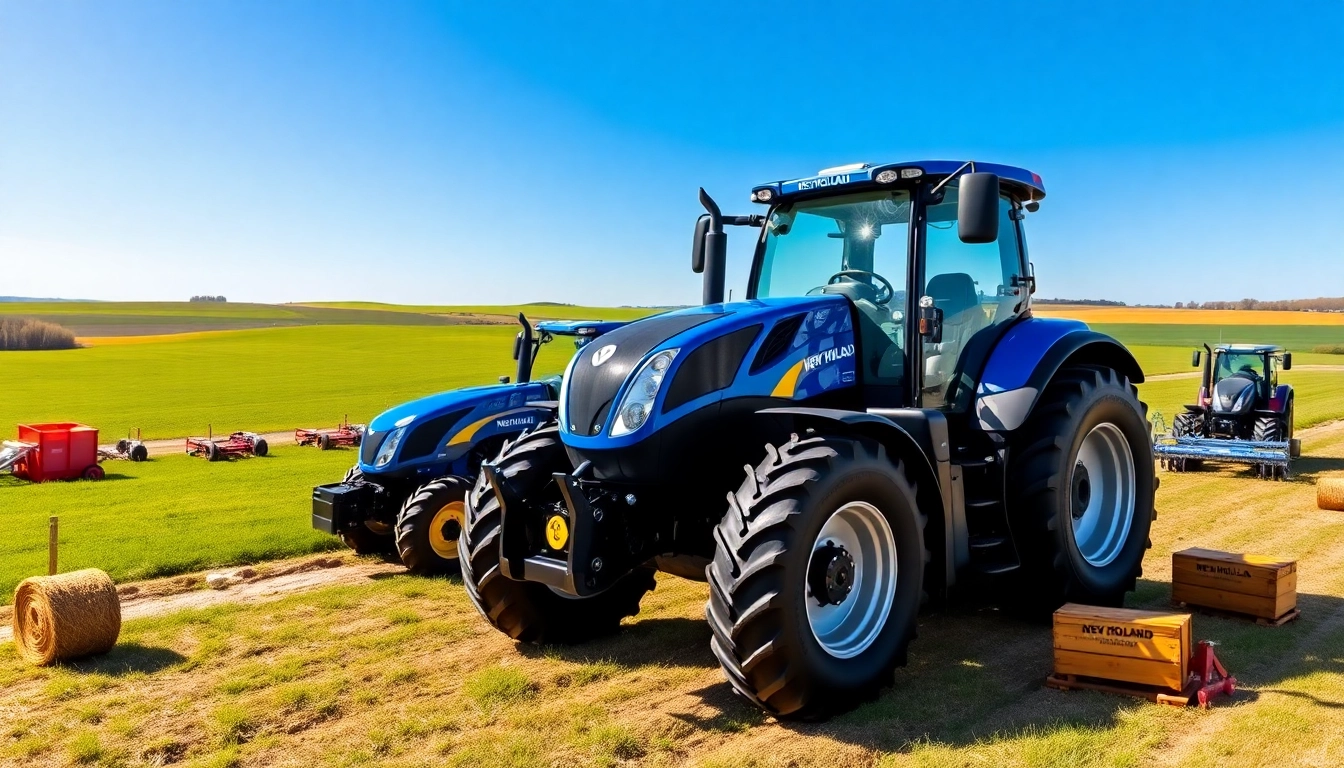
Understanding Pipe Stands: An Overview
In the world of construction, plumbing, and welding, the equipment used can significantly influence both the quality of the work and the safety of the workers involved. One essential tool that often gets overlooked is the pipe stand. These support structures are designed to keep pipes elevated and stable during various tasks, including cutting, welding, and assembling. Understanding the critical role of pipe stands can make a substantial difference in project efficiency, safety, and overall success. This comprehensive guide takes a deep dive into what pipe stands are, their features, types, how to select the right ones, safety practices, maintenance tips, and signs for upgrading your equipment.
What Are Pipe Stands?
Pipe stands are mechanical devices designed to support and stabilize pipes while they are being worked on. They allow users to safely elevate and position pipes at an ideal working height, facilitating various operations, including welding, cutting, and assembling. By providing a robust and stable base, pipe stands minimize the risk of accidents, enhance workflow, and improve overall functionality in construction and manufacturing settings.
Key Features of High-Quality Pipe Stands
When selecting pipe stands, certain critical features are essential to ensure optimal performance and safety. These include:
- Adjustability: Many pipe stands offer height adjustments to accommodate pipes of various sizes. This flexibility is essential for tasks requiring precise positioning.
- Load Capacity: High-quality stands are built to bear significant weights. Knowing the load capacity is crucial to ensure safety during use.
- Stability: A wide base and sturdy construction ensure that the stands do not tip over easily, even when working with heavy or oversized pipes.
- Portability: Many stands come with wheels or a foldable design for easy transportation and storage, enhancing usability in dynamic job sites.
- Material Quality: Stands made from high-quality steel or aluminum are more resistant to damage and can endure the rigors of demanding environments.
Types of Pipe Stands and Their Uses
Pipe stands come in various types, each designed for specific applications:
- Adjustable Pipe Stands: These are versatile and allow for height adjustments, making them ideal for various pipe sizes.
- Fixed Pipe Stands: These stands come in a set height and are often used in settings where the type of pipe and work required are consistent.
- Heavy-Duty Pipe Stands: Suitable for supporting larger, heavier pipes, these stands often feature reinforced frames and higher load capacities.
- Pipe Jacks: These supports are designed for lifting pipes and can be operated manually or mechanically for added convenience.
- Pipe Rollers: Used in conjunction with pipe stands, rollers facilitate movement along the stand, making alignment and assembly more straightforward.
- Collapsible Pipe Stands: Ideal for transport and storage, these stands can collapse for easy transport to different job sites.
How to Select the Right Pipe Stands for Your Needs
Choosing the correct pipe stands requires careful consideration of various factors. The right choice can prevent workplace accidents and enhance productivity. Here are some key steps to help you assess your needs effectively:
Assessing Load Capacity and Height Requirements
One of the first considerations when choosing pipe stands is the load capacity. Understanding the weight of the pipes you’ll be working with is crucial to selecting stands that can handle the strain. Another critical factor is height requirements; adjustable solutions may be beneficial for applications involving various pipe sizes. Always opt for pipe stands that exceed your expected maximum weight load to provide a safety margin.
Comparing Adjustable vs. Fixed Pipe Stands
Deciding between adjustable and fixed pipe stands largely depends on the nature of your projects. Adjustable stands are versatile, allowing for multiple pipe sizes and heights, making them suitable for varied applications. Fixed stands, while less flexible, can be more stable and easier to set up if you consistently work with a specific pipe type. Consider the frequency of changes in pipe dimensions when evaluating your choice.
Choosing Between Standard and Heavy-Duty Options
Standard pipe stands are ideal for lighter applications and can be sufficient for tasks involving smaller pipes. However, in cases where heavy materials need support, heavy-duty options provide enhanced stability and safety. Always take into account not just the weight of the pipes but any additional force that may act on these stands during operations—this is particularly relevant in welding and cutting tasks where movement and vibration can occur.
Best Practices for Using Pipe Stands Safely
Using pipe stands safely is paramount to ensuring a secure work environment. Here are best practices to follow:
Correct Setup and Placement Techniques
Proper setup is critical. Ensure that the surface where you place your pipe stands is level and sturdy. Always utilize all designated safety features of the stands, such as locking mechanisms. Place stands as close to the work area as possible to minimize the risk of instability during operations. For adjustable stands, be careful to lock them into place securely after setting the desired height.
Important Safety Considerations while Working
While working with pipe stands, wear the appropriate personal protective equipment (PPE), such as gloves, safety glasses, and steel-toe boots. Be aware of your surroundings and ensure other workers are informed when using heavy equipment or making changes to the setup, preventing unnecessary accidents. Maintain clear communication, especially in busy work environments.
Common Mistakes to Avoid
Avoiding certain common mistakes can greatly increase safety. Do not exceed the load capacity of your stands. Always check the equipment for any visible signs of wear or damage before use, and do not use faulty stands. Also, be cautious of using stands on uneven surfaces—always seek to rectify surface issues before setup. Lastly, ensure that all work is done based on manufacturer guidelines; neglecting to follow the manufacturer instructions can lead to accidents.
Maintenance Tips for Longevity of Your Pipe Stands
Proper maintenance of pipe stands is essential for ensuring their longevity and safe use. Here are some crucial maintenance tips:
Regular Inspection and Cleaning Procedures
Regularly inspect your stands for signs of wear or damage, including cracks, corrosion, or bent supports. Clean them periodically to remove dirt and debris, focusing on any moving parts to ensure they work smoothly. A clean stand is not only safer but also performs better. If stands are used in a corrosive environment, consider applying a protective coating.
Repairing Minor Damages to Ensure Safety
If you notice any minor damages during inspections, address them immediately. Small issues, such as loose screws or minor bends, can usually be fixed without much hassle. Replacing damaged parts rather than overlooking them can prevent more significant issues that could compromise safety.
Storing Pipe Stands Properly Between Uses
When not in use, store pipe stands in a dry and secure location to prevent rust and physical damage. Consider using protective covers or bags. Ensure they are placed in a manner where they won’t tip over or get knocked around, which can lead to damages. Proper storage will keep them in optimal condition and ready for use when needed.
Evaluating Performance: When to Upgrade Your Equipment
Over time, it may become necessary to assess your pipe stands’ performance to determine if upgrades are required. Here are factors to consider:
Signs That Indicate a Need for New Pipe Stands
Several indicators may suggest it’s time to upgrade your pipe stands. If your stands show excessive wear, such as rust or structural fatigue, or if they no longer meet the load requirements of your current projects, it’s time for an upgrade. Additionally, if operations are taking longer due to inadequate support or instability, more robust equipment may be necessary.
Comparing Pricing Trends and Upgrades
When planning an upgrade, review pricing trends and budget accordingly. More durable heavy-duty models may incur a higher initial cost but could save money in the long run due to reduced maintenance and replacement costs. Research various suppliers and ask for recommendations from peers in the industry to make informed choices.
Reading Customer Reviews and Case Studies
Look for customer reviews and case studies on different types of pipe stands. Understanding how others have successfully utilized specific products can provide insights on reliability and performance, helping you make a wise investment. Engaging with industry forums can also yield valuable recommendations regarding the best options currently on the market.







